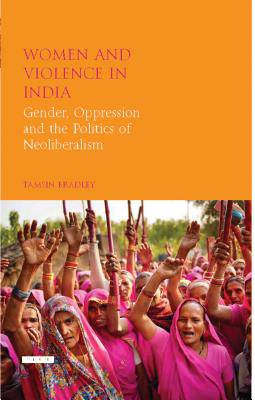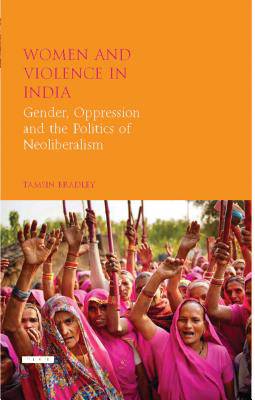
- Afhalen na 1 uur in een winkel met voorraad
- Gratis thuislevering in België vanaf € 30
- Ruim aanbod met 7 miljoen producten
- Afhalen na 1 uur in een winkel met voorraad
- Gratis thuislevering in België vanaf € 30
- Ruim aanbod met 7 miljoen producten
Zoeken
€ 81,45
+ 162 punten
Uitvoering
Omschrijving
India's endemic gender-based violence has received increased international scrutiny and provoked waves of domestic protest and activism. In recent years, related studies on India and South Asia have proliferated but their analyses often fail to identify why violence flourishes. Unwilling to simply accept patriarchy as the answer, Tamsin Bradley presents new research examining how different groups in India conceptualise violence against women, revealing beliefs around religion, caste and gender that render aggression socially acceptable. She also analyses the role that neoliberalism, and its corollary consumerism, play in reducing women to commodity objects for barter or exchange. Unpacking varied conservative, liberal and neoliberal ideologies active in India today, Bradley argues that they can converge unexpectedly to normalise violence against women. Due to these complex and overlapping factors, rates of violence against women in India have actually increased despite decades of feminist campaigning.
This book will be crucial to those studying Indian gender politics and violence, but also presents new data and methodologies which have practical implications for researchers and policymakers worldwide.
This book will be crucial to those studying Indian gender politics and violence, but also presents new data and methodologies which have practical implications for researchers and policymakers worldwide.
Specificaties
Betrokkenen
- Auteur(s):
- Uitgeverij:
Inhoud
- Aantal bladzijden:
- 272
- Taal:
- Engels
- Reeks:
Eigenschappen
- Productcode (EAN):
- 9780755600984
- Verschijningsdatum:
- 26/12/2019
- Uitvoering:
- Paperback
- Formaat:
- Trade paperback (VS)
- Afmetingen:
- 140 mm x 216 mm
- Gewicht:
- 312 g

Alleen bij Standaard Boekhandel
+ 162 punten op je klantenkaart van Standaard Boekhandel
Beoordelingen
We publiceren alleen reviews die voldoen aan de voorwaarden voor reviews. Bekijk onze voorwaarden voor reviews.








